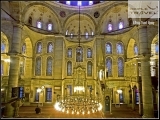Greece Information:
Geography: Greece, officially known as The Hellenic Republic, is the southernmost country on the European mainland. With an area of 131.940 square kilometres, Greece is about the same size as England or New York state. Over 3,000 Greek islands are scattered arount the eastern Mediterranean, with roughly 200 of them inhabited.
The Greek mainland shares land borders with Albania, the Former Yugoslav Republic of Macedonia (FYROM), Bulgaria and Turkey.
Population: 11.304.000 (2011 - census)
Greece\'s capital city, Athens, (population: 3,074,160) is also its largest, and is served by Piraeus, which is the country\'s main port. Although more than half the population is classified as urban, rural life retains a powerful influence. A strong sense of community and family ties prevail even in the busiest of metropolitan centres.
Religion: Most Greeks belong to the Greek Orthodox Church, which is governed by a synod of metropolitan bishops, presided over by the Archbishop of Athens. The largest religious minority is the concentration of Greek Muslims in northeastern Thrace. Some islands in the Ionian and Aegean have a significant number of Catholics. Greece\'s once vibrant Jewish community was nearly vanished in World War II.
Government: The Hellenic Republic is a parliamentary democracy with a 300 Parliament house, headed by the Prime Minister. Parliamentary sessions normally last for four years, followed by elections held on the basis of direct, secret, and universal ballot. The head of the Greek State is the President, who is elected by the Parliament.
Greece has been a member of the European Union since 1981.
ATMs: They are widely available all over the country.
Banks: Banks are open from Monday to Thursday, 8:00-14:30 hrs and on Friday, 8:00-14:00hrs; on Saturdays and Sundays they are closed. Central branches of some banks may be found open until 20.00 daily and from 10.00 to 16.30 on Saturdays. For further details while in Greece please consult your hotel concierge.
Climate: The climate in Greece is typically Mediterranean with warm and dry summers and mild winters.
Credit cards: All major credit cards are accepted in almost all hotels, shops and restaurants. Stickers in the front windows will advise you as to which cards are accepted.
Currency: EURO is the official currency.
Electricity: Electricity is 220 V/50 Hz. Plugs are the standard continental (DIN) type with two round pins.
Healthcare: Emergency treatment is free to all in public hospitals. Public and private hospitals can be found in big cities. Small and large islands usually have hospitals and health centres.
Language: Greek is the official language. Most Greeks speak English as a foreign language.
Restaurants: Restaurants and Taverns are normally open for lunch from 12:30 to 16:00, for dinner from 19:00 to midnight. Fast food and souvlaki shops usually serve food all day long, and some of them stay open till late at night. Cafes and bars are open all day from about 8:00 until late at night.
Telecommunications: The international access code for Greece is +30. The outgoing code is 00 followed by the relevant country code (e.g. 001 for the USA or Canada, 0044 for the United Kingdom). Public payphones are available all over Greece and use phone cards, which can be purchased from kiosks. For information concerning mobile phone use in Greece (telephone transmissions are based on GSM technology), please ask your provider.
Time: Greece is in the GMT+2 time zone.
Tipping: Tipping is not compulsory but is quite usual in Greece

 Greece -
Greece - 


0 Comments Added
Join the conversation